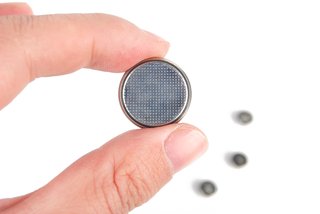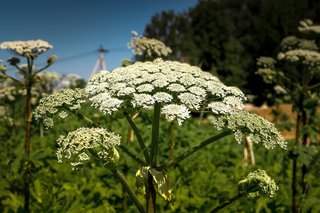Poisoning is most likely to happen to children age 1 to 4 years.
Most incidents happen in the child’s home, the home of a grandparent or a childminder, or at a crèche or school.
Lots of ordinary household products can be poisonous.
Types of poison include:
- medicines
- tablets and supplements
- household cleaning products, chemicals and detergents
- laundry or dishwasher tablets and pods
- garden products, such as weed killer
- farming and industrial chemicals
- hygiene products and cosmetics, such as deodorant, shaving foam and nail polish
- batteries, including button cell batteries
- carbon monoxide
- natural toxins such as venom from wasps and certain snakes
- poisonous plants and mushrooms
- room fresheners including liquid reed diffusers
- essential oils
- contents of syringes and needles
- alcohol — even very small amounts of alcohol can be harmful to small children
- e-cigarettes and cigarettes
- fire lighters
- mercury thermometers
You can reduce the risk of poisoning by keeping products out of your child's reach and sight.
Teach children to ask the adult minding them if something is safe to eat or drink. But do not expect them to do this.
The National Poisons Information Centre (NPIC)
NPIC provides advice for people caring for young children. Their public information line is open 8am to 10pm, every day.
If you think your child may have been poisoned, they can tell you when to get urgent medical attention.
Phone the poisons information line on 01 809 2166
Contact your GP or hospital emergency department if the information line is closed.
Medicines and vitamins
Keep all medicines and vitamin supplements in their original containers. Lock them in an overhead medicine cabinet or high cupboard.
Do not use the word 'sweets’ when talking about medicines or vitamins. Do not take medicines in front of children. This is because children often copy adults.
Be careful when your child is in another person's home as there may be medicines within reach.
Follow instructions on medicine labels carefully. If you need to, talk to your GP or pharmacist about your medicine or medicine instructions. Return old and unused medicines to your pharmacist.
Keep unused needles and syringes locked away. Dispose of them safely and immediately after use.
Cleaning products
Cleaning products can poison your child and cause skin reactions and burn injuries.
These include things such as:
- washing machine and dishwasher liquids, powders, tablets, pods and capsules
- bleach and bleach products
- washing up liquid
- kitchen and bathroom cleaners
Laundry and dishwasher tablets, capsules and pods are often attractive to children. This is due to their bright colours and interesting texture. Store them out of your child's sight and reach. Do not let children handle laundry and dishwasher products.
How to safely store household and cleaning products
Hygiene products and cosmetics
Keep the following out of your child's sight and reach:
- perfumes, deodorants and aftershave
- cosmetics — this includes fake tan and make-up
- creams
- shaving foam — do not use it for 'messy play'
- shampoo
- shower gel
- mouthwash
- toothpaste
- hand gels
- baby wipes and cosmetic wipes
Batteries
Keep all remote controls and spare or used batteries out of your child's sight and reach.
Make sure all battery compartments on toys and other items are secure and cannot be opened by your child.
Button batteries
Button batteries are small batteries that look a bit like coins. They are found in toys, remote controls, calculators and small electronic devices.
They are a choking risk for your child. If your child swallows a button battery it could seriously burn their insides.
All types pose a risk, but lithium button batteries are the most dangerous. Lithium batteries react with saliva so that they leak corrosive chemicals.
Be extra careful with things that do not have locked battery compartments. These include musical greeting cards, flameless candles and remote controls.
Emergency action required: Go to your nearest emergency department (ED) immediately if:
- you think your child has swallowed a button battery
For children over 12 months, give them 2 teaspoons of honey if they can swallow. This can help to protect their insides until they arrive at the ED.
Do not give honey to younger children.

Carbon monoxide
Carbon monoxide is produced when any fuel is burned. This includes oil, coal, wood, gas and turf.
Carbon monoxide poisoning can happen from the following:
- faulty, damaged or badly installed heating appliances
- heating appliances not maintained, serviced or used properly
- rooms not being properly ventilated
- blocked chimneys or flues
- using a barbecue grill or outdoor heater indoors
- any type of property alterations or home improvements that reduce ventilation
- running engines in garages or sheds
- using cooking appliances for heating purposes
You cannot see, taste or smell carbon monoxide. Make sure you have working carbon monoxide alarms in every room in your home.
If you rent your home, check that your landlord has installed one.
Find more advice on carbon monoxide - Carbonmonoxide.ie
Alcohol and cigarettes
Lock alcohol and cigarettes away out of sight and reach. Even small amounts of alcohol can be harmful to small children.
Make sure you empty ashtrays and throw cigarette butts away. They have enough nicotine in them to be toxic to babies and small children.
Other products containing nicotine can harm children. These include nicotine gum, sprays, pastilles and patches. Always keep these products out of sight and reach of children.
E-cigarettes
Do not leave e-cigarettes or their refills in reach or sight of children. E-cigarettes also contain nicotine.
If your child swallows any of the liquid in an e-cigarette, take them to your nearest hospital emergency department (ED).
Plants
Certain plants can be poisonous. Flowers and berries can be attractive to children, who may want to put them in their mouth.
Get rid of any fungi or mushrooms growing in your garden. Remove access to poisonous plants.
Get advice from staff in your garden centre when you buy plants.
Store plant food, weed killer, slug pellets and other garden chemicals out of the reach of children. If possible, store them in a locked cupboard. Always keep them in their original containers.
Giant hogweed
The giant hogweed plant is found in grassy or waste land, especially near water. Keep your child away from giant hogweed. Even slight contact with this plant can cause serious skin irritation.

Mercury thermometers
Mercury is very poisonous.
Never use a mercury thermometer to take your child's temperature. If the thermometer breaks, glass splinters and mercury can harm your child.
You cannot buy mercury thermometers anymore. But you may still have an older one in your home.
You may also have room or outdoor thermometers that have mercury in them.
Remove any mercury thermometers from your home.